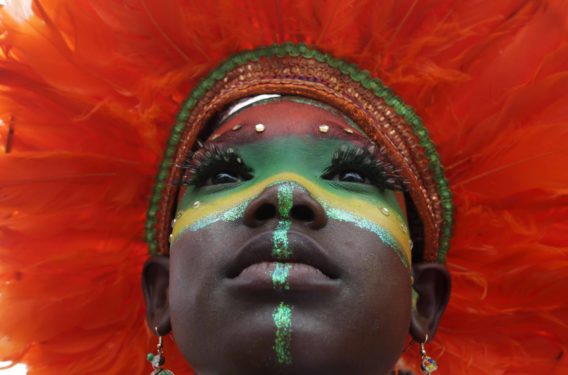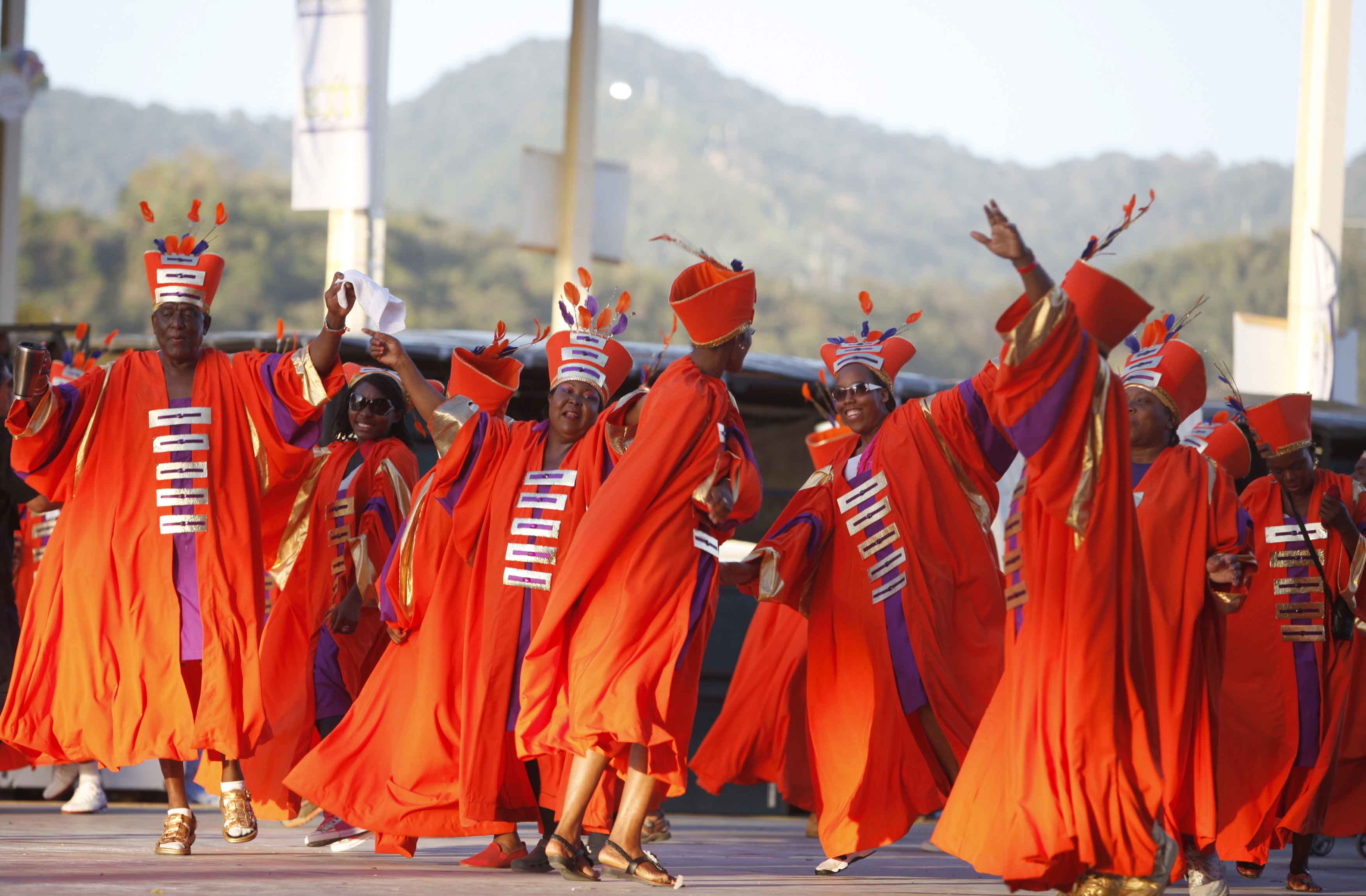
PORT-OF-SPAIN, Trinidad (CNS) – It’s a flesh-fest. That’s the simplest definition of Trinidad Carnival today: a feverish festival featuring a season of sizzling soca, fiery fetes and heady nighttime limes on an island where you can still chug your beer standing in the street, culminating in a frenzied, two-day street parade featuring bands of near-naked masqueraders writhing in golden sunshine and glittering costumes.
The festival is intrinsically Catholic – its calendar position immediately precedes Ash Wednesday as a “farewell to the flesh” before Lent, and it was introduced to the islands by 18th-century French Catholic refugees fleeing persecution. While some cringe, scores of Catholics are actively involved in producing costumes, public parties and soca music, then taking to the streets on Carnival Monday and Tuesday.
And, that’s precisely where some artists say Catholics ought to be.
“We need to own who we are through Carnival,” said singer/songwriter Kees Dieffenthaller. “As a Catholic in today’s world, I think that it’s important that we find Christ in everything, in the profane and the profound.”
“Jesus walked among the tax collectors, Jesus walked among the man in the street,” he said. “If he was around today, there wasn’t going to be places that he was not going to be.”
Archbishop Jason Gordon of Port of Spain has echoed that position.
The “Catholic perspective praises and highlights the good, and challenges and confronts the bad,” he said in a February 2018 statement, “proposing ways of moral conversion for the individuals, thus evangelizing the festival as a whole.”
In examining the teachings of his three immediate predecessors over the past 50 years, Archbishop Gordon noted: “All of them acknowledged the beauty, creativity and splendor of Carnival. Evangelization requires us to accept what is noble and good, and to challenge and transform what is not.”
The local church has actively tried intervention. With the blessing of then-Archbishop Joseph Harris, a group of concerned Catholics produced “The Word & Associates” Carnival band in 2011. They offered costumes, food and drinks. However, unlike secular bands, they were heavily subsidized, and the drinks were nonalcoholic.
“Carnival, we thought, was getting out of hand, in the sense that the costumes depended too much on close to nudity,” said the former organizer, Felix Edinborough.
t’s a flesh-fest. That’s the simplest definition of Trinidad Carnival today: a feverish festival featuring a season of sizzling soca, fiery fetes and heady nighttime limes on an island where you can still chug your beer standing in the street, culminating in a frenzied, two-day street parade featuring bands of near-naked masqueraders writhing in golden sunshine and glittering costumes.
Praise God Through Creativity
“We wanted responsible behavior and a good costume,” he said, “to show that Carnival is creative, is something where we could praise God through our senses, our artistry, through our creativity, because God is the ultimate Creator.”
The project was short-lived. A shriveling local economy caused sponsors to divert their funds to larger bands sporting thousands of masqueraders, rather than “Word’s” dozens. They pranced their last in 2016.
Dieffenthaller believes balance is possible – making music that is joyful, celebratory and honors God.
“As a musician, there is something about making music that touches your soul and touches God. I just enjoy creating with that level of consciousness and understanding the power of music. And what it really can do for change.”
Force For Good
Because, he believes, the Catholic is meant to be a force for good in the world.
“The world is outside of the church,” he said. “The church is a good recharging community; the church brings together people who are believing the same. We’re celebrating what we believe.”
“That light that is built in there has to spread, it has to be in every day,” he added. “And, this is the message of Christ. His light was for everyone, for everything.”
But, costuming continues to be a sore point, even among Carnival lovers.
“The costume determines your behavior,” said Edinborough. “When you have costumes covering your whole body, you show your costume. When you have no costume, you only have your body, so you have to show your body.”
Carnival’s moral decline stemmed largely from its departure from family and community-based activity to big business, said Robert Miller, veteran wire-bender and craftsman.
“Longtime masqueraders got involved in their costume, even if it is to stitch one bead or sweep up (after the craftsmen),” he said from the Bess Belmont Exotic Stylish Sailors Mas’ Camp in Belmont. Mas’ is an abbreviation for the word masquerade.
“Now, masqueraders just want a costume, they just give you the money,” he said.

